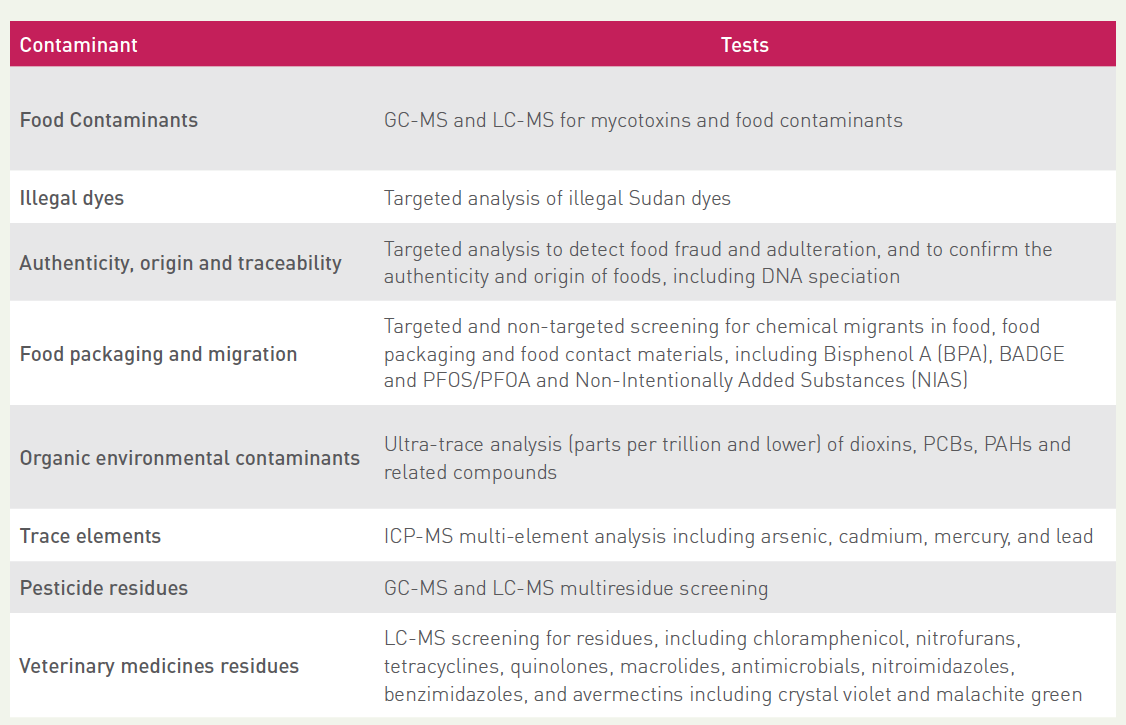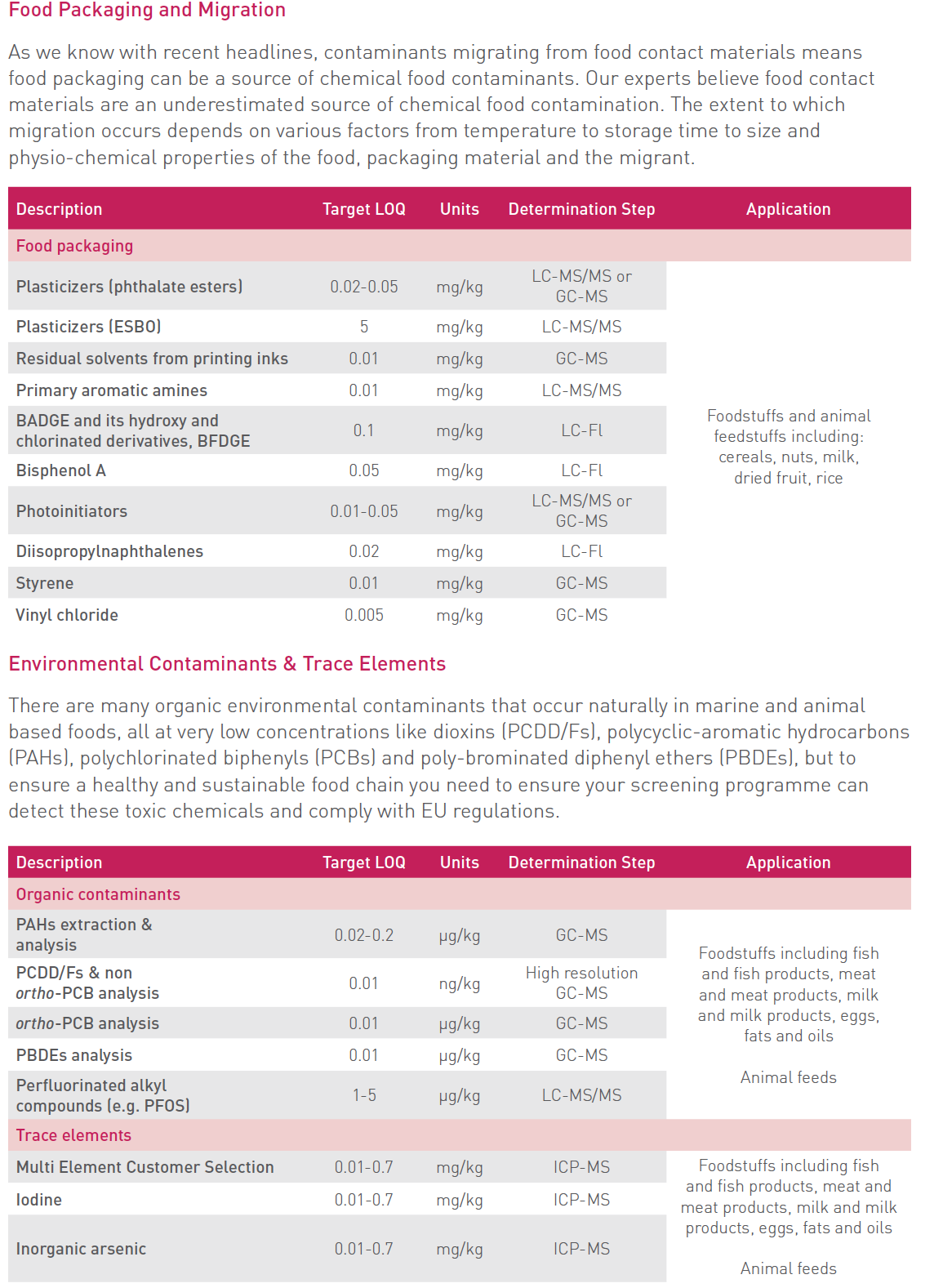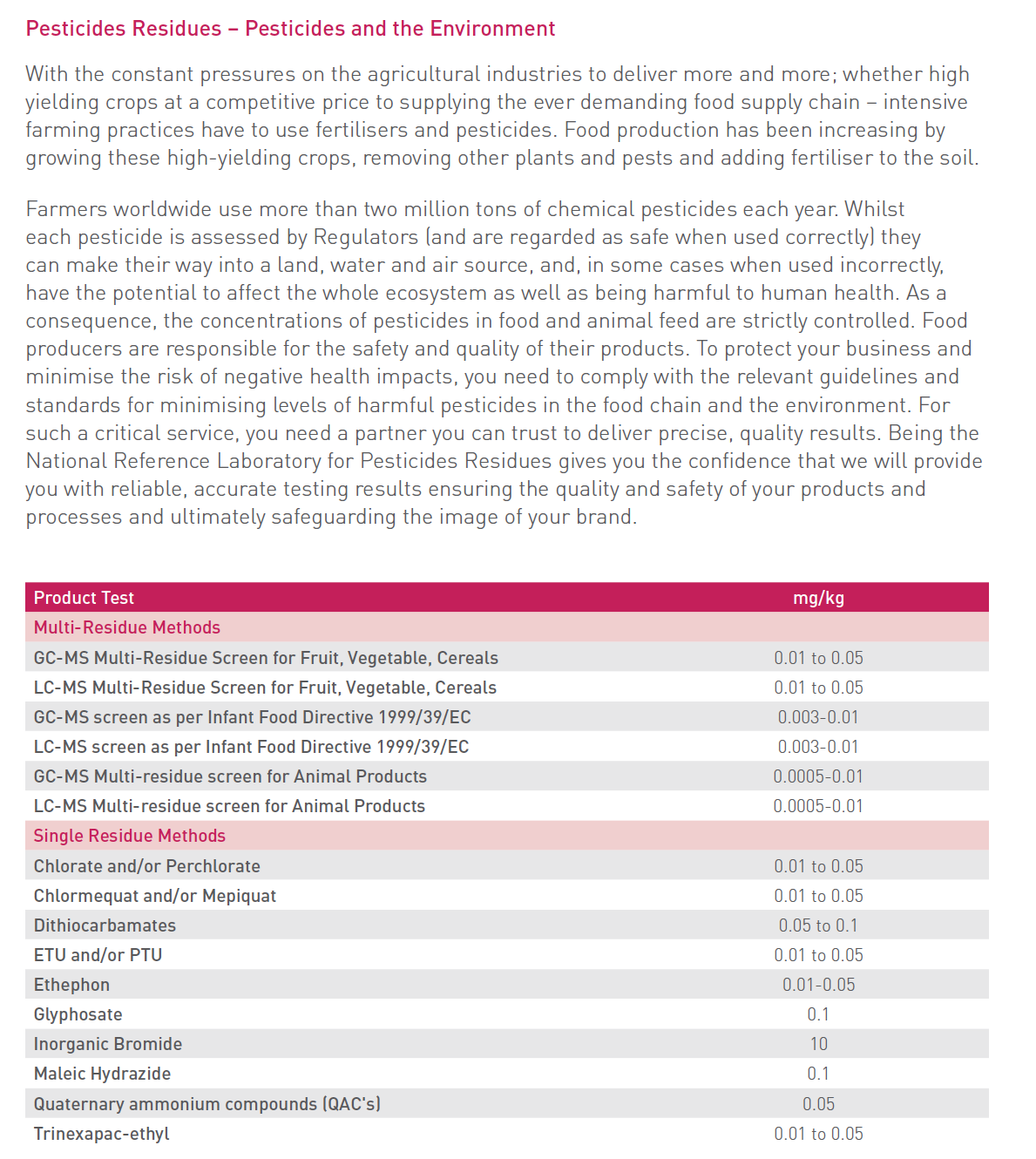Agriculture
Standard Routine Tests
Our laboratory base in Upperhill, Nairobi is strategically centrally located within the Nairobi to allow fast and reliable testing and analysis; protecting your company, preserving your reputation and ensuring safe and quality food is delivered to the market. Whether focusing on specific aspects of your operations, or providing integrated solutions along your entire supply chain, our proposition remains the same; total commitment to delivering expert services that add real value to your business.
Combating food fraud is an ongoing mission for manufacturers and consumers alike in our fast paced modern society where traceability and sustainability are high on the agenda. For example, whether food contains animal by-products that are not fit to enter the food chain. From the packing and selling of beef and poultry with an unknown origin to knowingly selling goods which are past their ‘use by’ date, or the deliberate mis-description of food, such as products substituted with a cheaper alternative, these issues can all be serviced by Lab Works East Africa’s wide offering of food Integrity diagnostics and quality screening range.

Food Packaging and Migration
As we know with recent headlines, contaminants migrating from food contact materials means food packaging can be a source of chemical food contaminants. Our experts believe food contact materials are an underestimated source of chemical food contamination. The extent to which migration occurs depends on various factors from temperature to storage time to size and physio-chemical properties of the food, packaging material and the migrant.

Pesticides Residues – Pesticides and the Environment
With the constant pressures on the agricultural industries to deliver more and more; whether high yielding crops at a competitive price to supplying the ever demanding food supply chain – intensive farming practices have to use fertilisers and pesticides. Food production has been increasing by growing these high-yielding crops, removing other plants and pests and adding fertiliser to the soil.
Farmers worldwide use more than two million tons of chemical pesticides each year. Whilst each pesticide is assessed by Regulators (and are regarded as safe when used correctly) they can make their way into a land, water and air source, and, in some cases when used incorrectly, have the potential to affect the whole ecosystem as well as being harmful to human health. As a consequence, the concentrations of pesticides in food and animal feed are strictly controlled.
Food producers are responsible for the safety and quality of their products. To protect your business and minimise the risk of negative health impacts, you need to comply with the relevant guidelines and standards for minimising levels of harmful pesticides in the food chain and the environment. For such a critical service, you need a partner you can trust to deliver precise, quality results.

